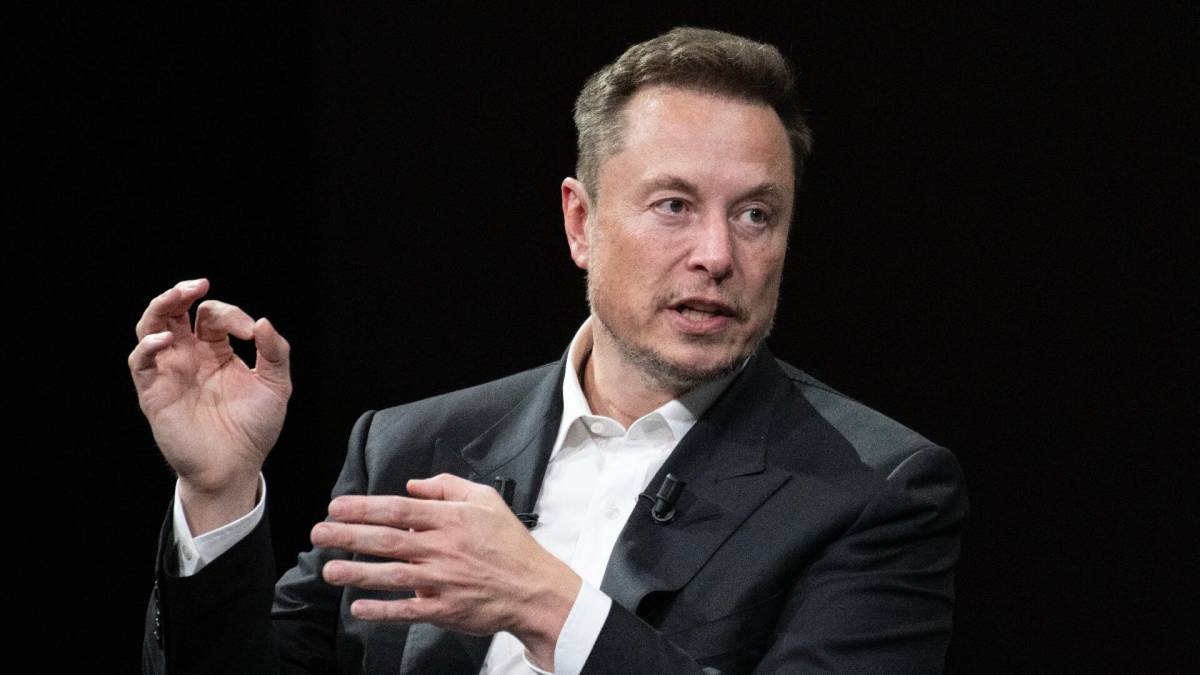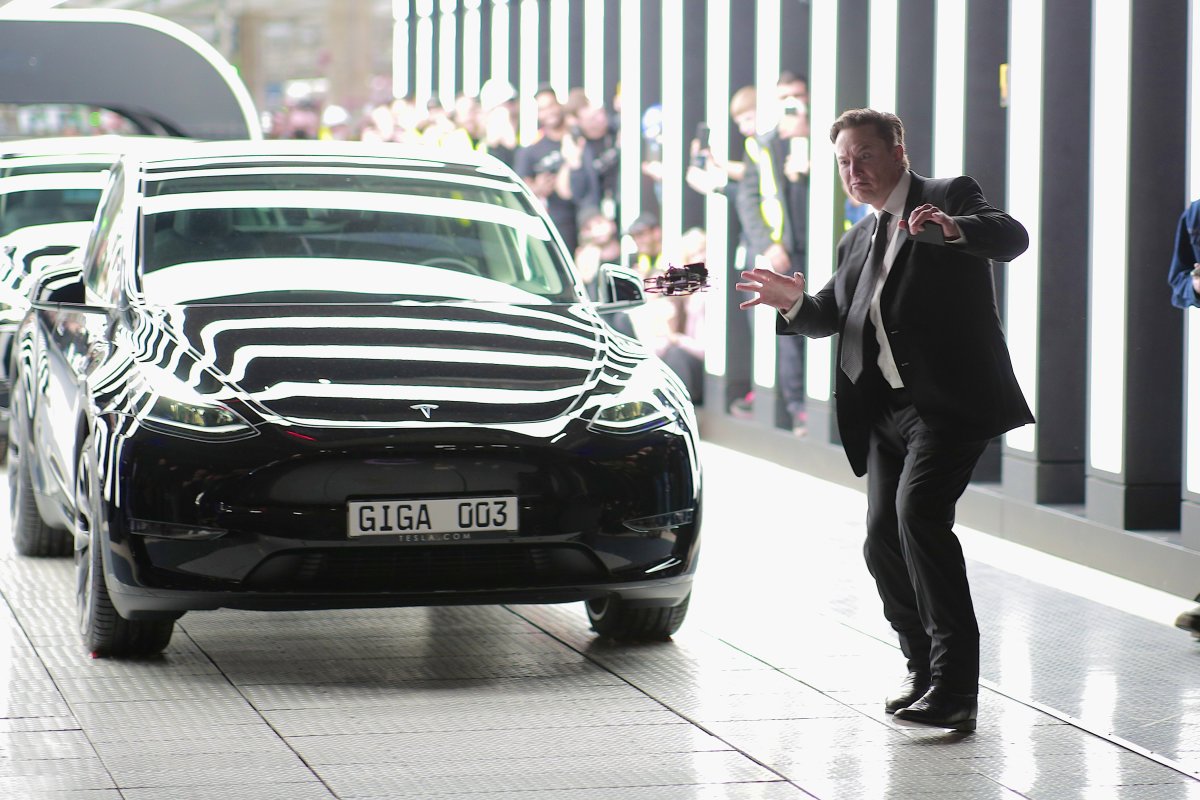
Elon Musk really doesn't like Alexandre de Moras.
Tesla's (TSLA) CEO took to X, formerly Twitter, the microblogging platform he bought in 2022, to express his anger at de Moras, a Brazilian Supreme Court justice who has included him as a target in an ongoing investigation over the dissemination of fake news.
"Coming shortly, 𝕏 will publish everything demanded by @Alexandre and how those requests violate Brazilian law," Musk said in an April 7 post. "This judge has brazenly and repeatedly betrayed the constitution and people of Brazil. He should resign or be impeached. Shame @Alexandre, shame."
The judge also opened a separate investigation into Musk for alleged obstruction, according to the Associated Press.
Meanwhile, Tesla settled a lawsuit brought by the family of a Silicon Valley engineer who died in a 2018 crash on a San Francisco Bay Area highway while relying on the company’s semi-autonomous driving software, AP reported.
The amount Tesla paid to settle the case was not disclosed in court documents filed on April 8, a day before the trial stemming from the crash was scheduled to begin.
In a court filing seeking to keep the sum private, Tesla said it agreed to settle the case in order to “end years of litigation.”
The family of Walter Huang filed a negligence and wrongful death lawsuit in 2019 seeking to hold Tesla liable for repeatedly exaggerating the capabilities of Tesla’s self-driving-car technology.

Low-cost EV reportedly scrapped by Tesla
While Huang’s family acknowledged he was distracted while the car was driving, they argued Tesla was at fault because it falsely marketed Autopilot as self-driving software.
Late last month, Musk told Tesla employees that it would be “mandatory” for its North American operations to install and activate Full-Self-Driving software in new Tesla vehicles and take customers on a short test ride before handing over the car.
Related: Analyst unveils new Amazon price target as stock tests $2 trillion
The world's largest electric vehicle maker has been contending with disappointing deliveries, increased competition from China, and a slowdown in EV sales.
Analysts have taken note of the company's challenges and are reviewing their assessments of the company.
Tesla shares recently took a dive following a Reuters report that said the company had canceled its highly anticipated low-cost electric vehicle.
Reuters, citing three unnamed sources familiar with the situation and internal company documents, said the decision to scrap the cheaper model came in February.
Part of the move, according to the report, involves an internal pivot to focus more of the company's attention on developing a fleet of robotaxis
Musk wrote in an April 5 post on X that "Reuters is lying (again)."
Martin Eberhard, founder and former chief executive, said it was a “shame” to hear that the automaker was scrapping its low-cost car plans, Reuters reported on April 9.
“We've both read in the news, Tesla delaying or eliminating their low-end Model 2 program, which is a shame for them, but it's a sign that China has a chance to really spread there,” Eberhard said at the HSBC Global Investment Summit in Hong Kong.
Morgan Stanley analyst Adam Jonas noted the timing of the Reuters story with Musk’s announcement this month that Tesla will unveil its robotaxi on Aug. 8.
Jonas, who affirmed Morgan Stanley’s overweight rating and $310 price target on Tesla shares, said he began writing about the investment considerations of a potential Tesla robotaxi business since he began modeling “Tesla Mobility” in 2015. That's when Tesla’s market cap was barely $30 billion. It's currently north of $550 billion.
“We had (mistakenly) expected the company to formally launch a highly automated ride-share service back in 2018,” he wrote. “Nearly a decade later, we’re still waiting.”
Analyst: path to robotaxis 'long-dated and volatile'
The analyst said that Aug. 8 will offer some important clues.
While Tesla has many attributes “that can make it a formidable player (if not an outright winner) in the race to autonomy, we believe the more material commercial scaling of the business would be well beyond 2030,” Jonas said.
More Tesla:
- Analysts update Tesla stock outlook after yet another EV price change
- Cathie Wood buys $35 million of beaten-down tech stock
- Analyst reveals new Tesla price target, Mag 7 risk as shares extend slump
The analyst cautioned that the path to commercialization at scale of "true robotaxis" with no steering wheels will be "both long-dated and volatile."
Jonas expects that investors will witness a shift in Tesla's business model over time to a more asset-light, software-based, recurring-revenue model. He wondered whether a robotaxi could be the first step in shifting the core business.
On April 2 Tesla posted a much weaker-than-expected tally of first-quarter deliveries.
Tesla delivered 386,810 new cars over the three months ended in March, the company said in a statement, down 8.5% from the year-earlier period and 20% south of the record 484,507 total reached over the three months ended in December.
Analysts' delivery forecasts ranged from 425,000 to around 470,000, with LSEG data putting the March-quarter target at around 455,000 units.
At the time, Wedbush analyst Dan Ives described the results as “an unmitigated disaster.”
Despite robotaxi's potential, Goldman Sachs slashed its price target for Tesla to $175 from $190 while affirming a neutral rating on the shares.
The firm attributed the weakness to both production and competitive/market headwinds. Goldman's positive view of Tesla's long-term growth potential and market position is offset by what it believes is a full valuation and weaker near-term fundamentals.
UBS analyst Joseph Spak told investors that Tesla's vehicle unit growth could be challenged over the coming years, following the investment firm's 2024 Global EV survey results.
While Tesla kept its leading battery-electric-vehicle brand consideration with 39% globally, Spak said he viewed the results as headwinds to Tesla unit growth over the coming years. That's given the survey results outside China, a continued plateau in EV demand inside China, and more competition.
UBS made no change to its neutral rating or $160 price target.
Related: Veteran fund manager picks favorite stocks for 2024







